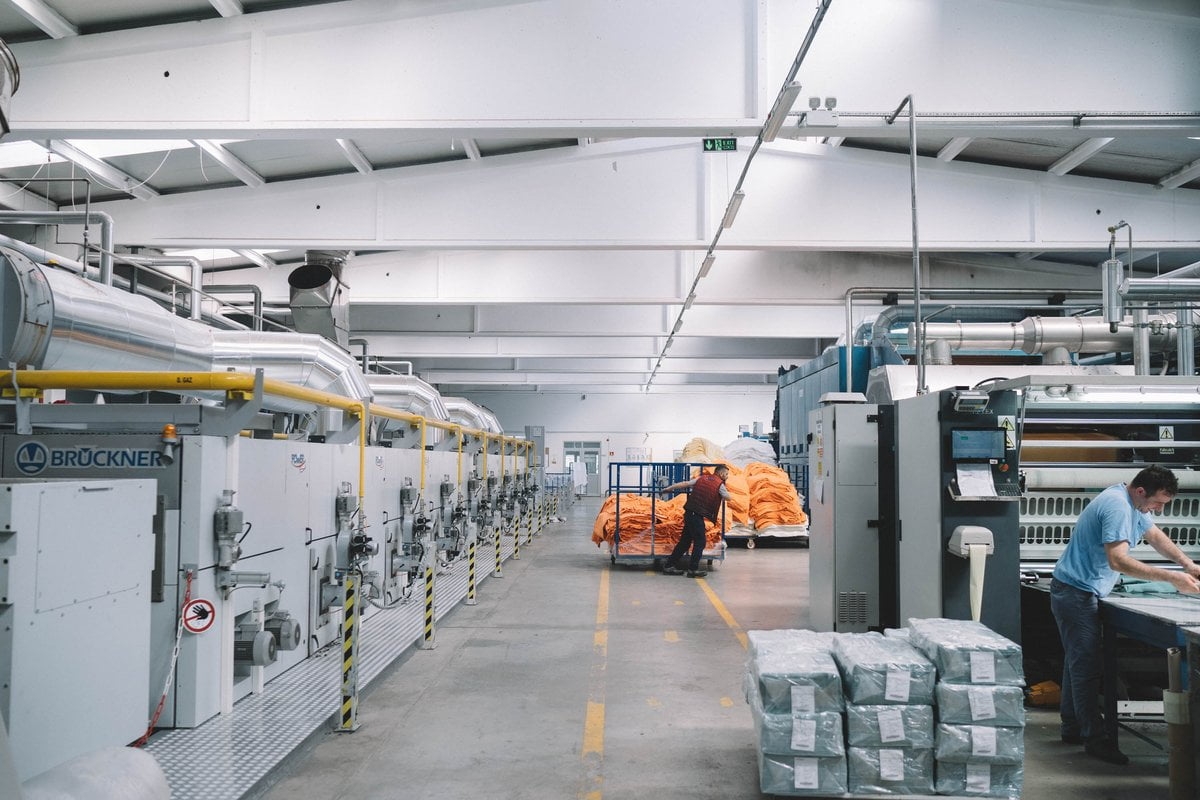Why Do UK Fabric Wholesalers Require Minimum Order Quantities?

When purchasing fabrics in bulk, many UK wholesalers enforce Minimum Order Quantities (MOQs). For new buyers, this can be confusing—why can’t they order just a few meters? The reasons are tied to business sustainability, production efficiency, and cost management.
In this article, we’ll explore the key reasons behind MOQs, how they benefit both suppliers and buyers, and what alternatives exist for smaller businesses.
1. What Are Minimum Order Quantities (MOQs)?
Minimum Order Quantities (MOQs) refer to the smallest amount of fabric a buyer must purchase in a single order. These limits vary depending on the supplier, fabric type, and production costs.
For example, a wholesaler might set an MOQ of 100 meters per design or 50 units per color. This ensures that production and supply remain profitable while keeping costs reasonable for bulk buyers.
2. Maintaining Production Efficiency
Producing fabrics in large quantities allows manufacturers to optimize their processes. Running small, custom orders frequently disrupts workflow, leading to:
-
Higher setup costs – Machines need recalibration for different fabrics.
-
Wasted materials – Small runs often leave unused raw materials.
-
Longer lead times – Frequent changes slow down overall production.
By enforcing MOQs, wholesalers ensure smooth, uninterrupted production, which ultimately benefits buyers with consistent quality and faster turnaround times.
3. Reducing Costs for Both Suppliers & Buyers
Bulk manufacturing reduces per-unit costs. When wholesalers produce large quantities, they benefit from:
-
Lower raw material costs (bulk discounts from mills).
-
Reduced labor costs (fewer machine adjustments).
-
Economies of scale (higher volume = lower cost per meter).
These savings are passed on to buyers, making MOQs a win-win for businesses that need large fabric quantities.
4. Managing Inventory & Storage
Storing fabrics requires warehouse space, which isn’t free. Suppliers must balance:
-
Holding costs (rent, utilities, maintenance).
-
Risk of dead stock (unsold fabric = lost profit).
MOQs help wholesalers minimize excess stock while ensuring they meet bulk buyer demands efficiently.
5. Ensuring Profitability for Wholesalers
Fabric wholesalers UK operate on thin margins. Small orders often aren’t profitable due to:
-
Shipping costs (sending small quantities is expensive).
-
Administrative work (processing multiple small orders takes more time).
-
Lower sales volume (small orders don’t justify operational costs).
MOQs help wholesalers stay in business while offering competitive pricing.
6. Encouraging Serious Buyers & Reducing Wasted Time
Not every inquiry leads to a sale. Some buyers request samples or small quantities but never place bulk orders. MOQs help suppliers:
-
Filter out non-serious buyers (focusing on long-term clients).
-
Avoid wasted resources (time spent on small, unprofitable orders).
-
Build stronger B2B relationships (working with committed buyers).
This ensures that both suppliers and buyers engage in mutually beneficial partnerships.
7. Supporting Sustainable Manufacturing
Producing fabric in small batches is less eco-friendly because:
-
More energy is wasted in frequent machine setups.
-
Excess waste is generated from leftover materials.
-
Higher carbon footprint due to multiple small shipments.
MOQs promote sustainable bulk production, reducing environmental impact.
8. How Small Businesses Can Meet MOQs
Not every business needs thousands of meters. Here’s how smaller brands can still work with wholesalers:
-
Collaborate with other designers (group orders to meet MOQs).
-
Choose versatile fabrics (order one type in bulk for multiple uses).
-
Work with flexible suppliers (some offer lower MOQs for new clients).
For those who need high-quality fabrics without huge commitments, suppliers like Create Fabrics provide reliable options with reasonable MOQs.
9. Alternatives to High MOQs
If MOQs are too high, consider:
✅ Fabric marketplaces (smaller quantities available).
✅ Remnant sales (leftover stock sold at discounts).
✅ Local fabric stores (for very small needs).
However, for consistent quality and bulk pricing, sticking with wholesalers is often the best long-term solution.
Conclusion
Minimum Order Quantities exist for valid business reasons—production efficiency, cost control, and sustainability. While they can be challenging for small businesses, understanding MOQs helps buyers make informed decisions.
If you're looking for a trusted UK wholesaler with fair MOQs and premium fabrics, you can explore Create Fabrics, a leading supplier known for quality and reliability.
FAQs
1. Why can’t I order less than the MOQ?
Suppliers set MOQs to cover production and operational costs. Smaller orders often result in losses.
2. Can MOQs be negotiated?
Some wholesalers may adjust MOQs for repeat customers or large future orders—always ask!
3. What if I only need a small amount of fabric?
Consider fabric marketplaces, remnants, or partnering with other designers to meet MOQs.
4. Do all wholesalers have high MOQs?
No, some specialize in low MOQs—research suppliers like Create Fabrics for flexible options.
5. Are MOQs the same for all fabrics?
No, MOQs vary based on material, design complexity, and supplier policies.
By understanding MOQs, you can make smarter purchasing decisions and build better relationships with wholesalers.
- Art
- Causes
- Crafts
- Dance
- Drinks
- Film
- Fitness
- Food
- Games
- Gardening
- Health
- Home
- Literature
- Music
- Networking
- Other
- Party
- Religion
- Shopping
- Sports
- Theater
- Wellness


